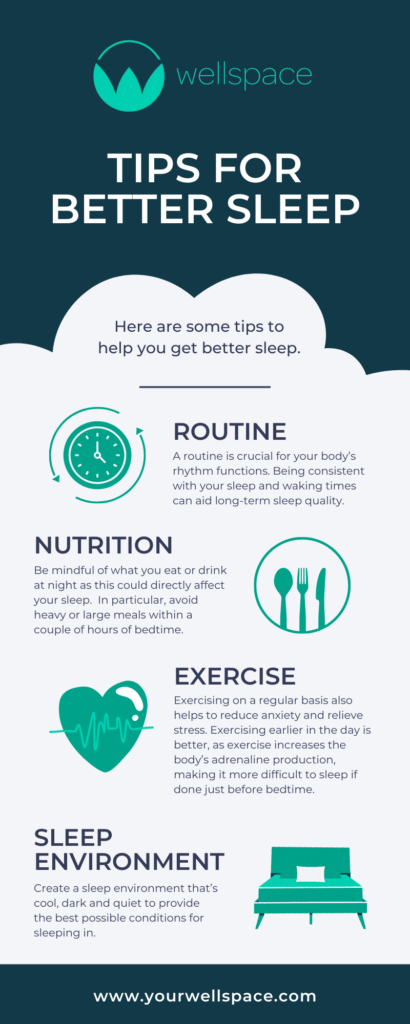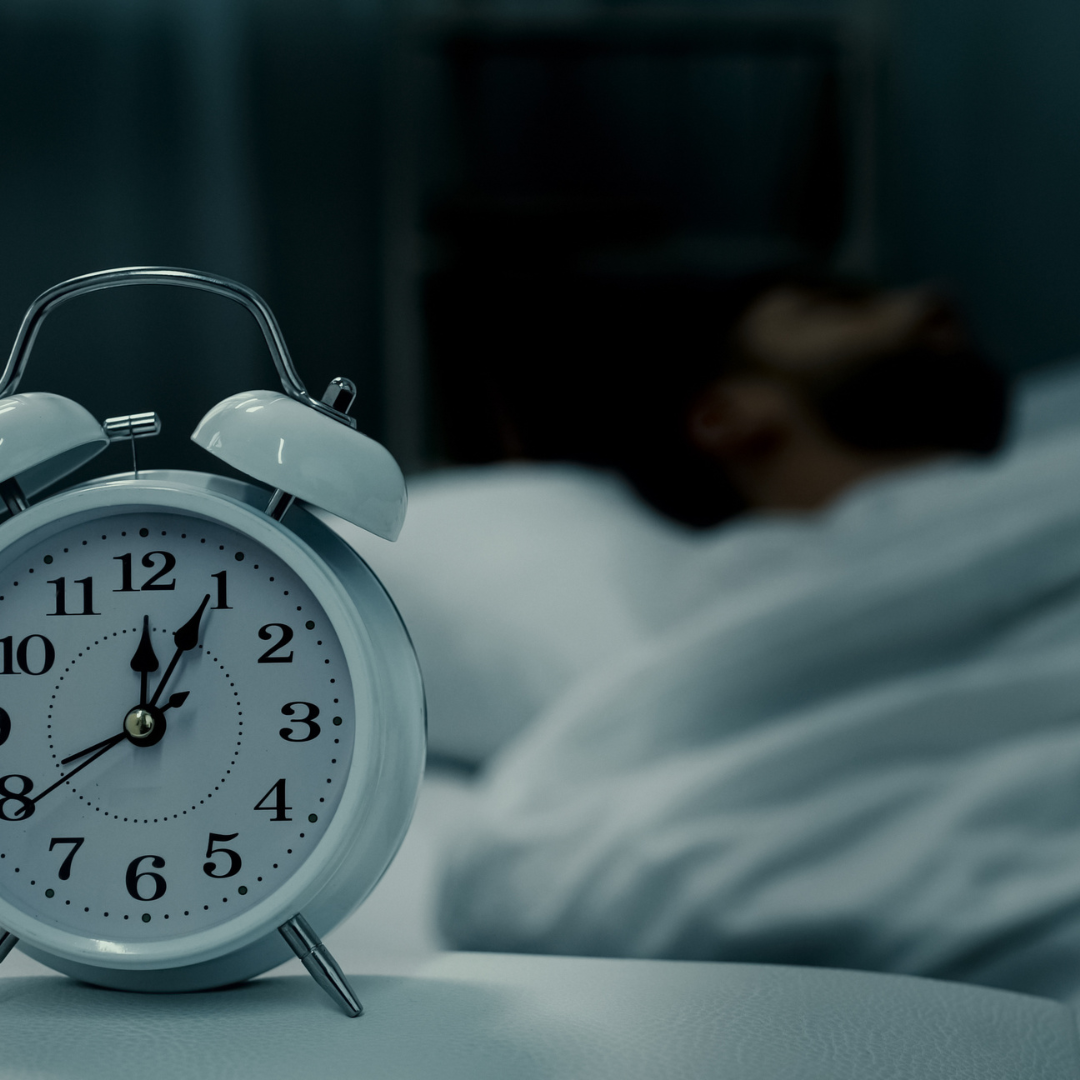
Sleep, often overlooked, is an essential part of our overall health and wellbeing. In our increasingly busy world, getting a good night’s sleep can sometimes feel like a luxury we can’t afford. However, quality sleep is not a luxury but a necessity for our physical and mental health. So, what can you do to improve your sleep? Here are some key areas to focus on.
Routine
A routine is crucial for your body’s rhythm functions. Being consistent with your sleep and waking times can aid long-term sleep quality. Just like children, adults need regular sleep routines. Our bodies crave consistency. By going to bed and waking up at the same time every day, you can help regulate your body’s internal clock. This can help you fall asleep and wake up more easily. This also applies to weekends. As tempting as it may be to sleep in on a Saturday, try to stick to your regular sleep schedule as much as possible.
Nutrition
Be mindful of what you eat or drink at night as this could directly affect your sleep. In particular, avoid heavy or large meals within a couple of hours of bedtime. Consuming too much food, or the wrong kinds of food, can lead to indigestion and discomfort, which can make it hard to fall asleep. Try to avoid caffeine and alcohol close to bedtime as well. Even though alcohol might make you feel drowsy, it can disrupt your sleep patterns and lead to less restful sleep.
Exercise
Exercising regularly also helps to reduce anxiety and relieve stress. Exercising earlier in the day is better, as exercise increases the body’s adrenaline production, making it more difficult to sleep if done just before bedtime. Regular physical activity can help you fall asleep faster and enjoy deeper sleep. However, timing is important. Try not to exercise too close to bedtime, or it may interfere with your sleep.
Sleep Environment
Create a sleep environment that’s cool, dark and quiet to provide the best possible conditions for sleeping in. Pay attention to your sleep environment and make it as comfortable as possible. This isn’t just about having a good mattress and pillows. Consider factors like room temperature (the cooler, the better), noise levels (consider using a white noise machine if you need to block out noise), and light (the darker, the better). Also, make your bedroom a screen-free zone. The light from our devices can interfere with our body’s production of melatonin, a hormone that regulates sleep and wake cycles.
Sleep plays a vital role in your health and wellbeing. Making a few small changes to your lifestyle can make a big difference in improving your sleep quality. So, start incorporating these tips into your routine today and wake up feeling refreshed and rejuvenated every day.
For more tips and tricks on achieving better sleep, visit www.yourwellspace.com.










